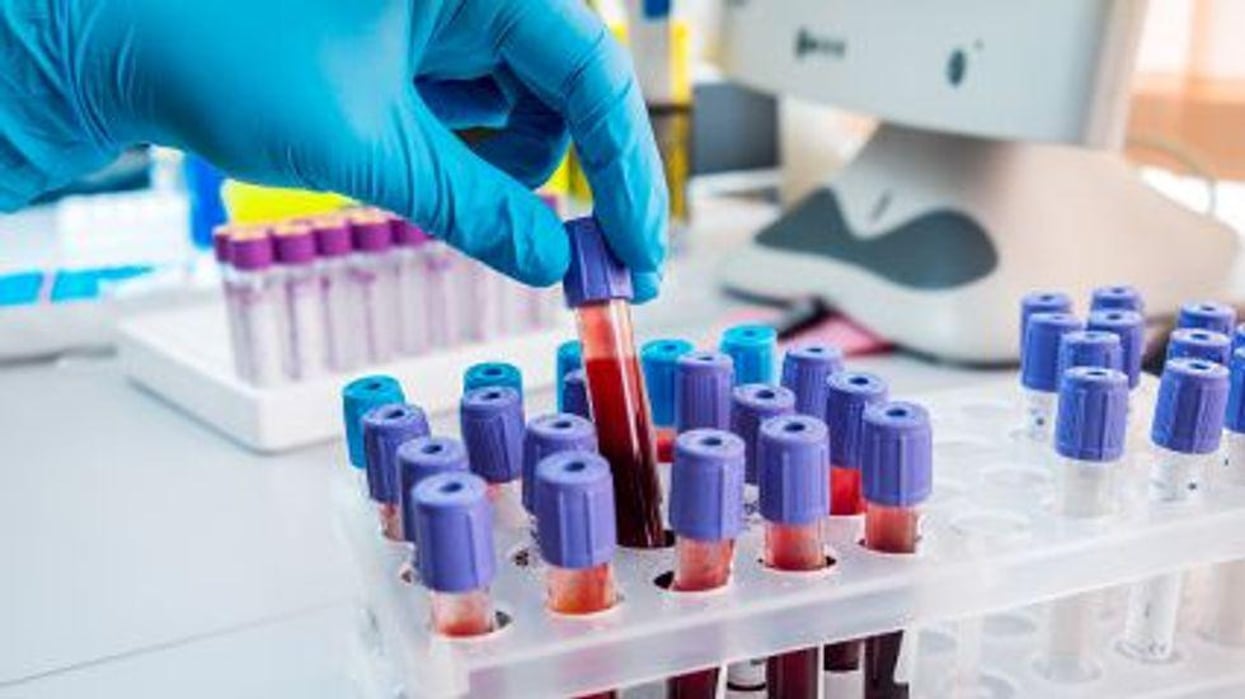Blood Test Might Help Diagnose Parkinson’s Disease Much Earlier

THURSDAY, Aug. 31, 2023 (HealthDay News) -- As it stands, no one blood test or brain scan can definitively diagnose Parkinson's disease.
But researchers report this may soon change if a new blood test continues to show promise.
The test measures DNA damage in the mitochondria of cells, which is known to be higher in people with Parkinson’s disease. Earlier research from the same group also showed there is an accumulation of mitochondrial DNA damage in the brain tissue of people who died from Parkinson’s disease.
“While more work is needed to validate the blood test, our goal is to get this to the bedside as quickly as possible,” said study author Laurie Sanders, an associate professor of neurology and pathology at the Duke School of Medicine, in Durham, N.C. “A clear-cut diagnosis would accurately identify patients who could participate in drug studies, leading to the development of better treatments and potentially even cures.”
The new test also identified high levels of this damaged DNA in the blood of people who have a genetic mutation known as LRRK2, which has also been associated with an increased risk of developing Parkinson’s disease.
“We were able to see this marker in people who carry a genetic mutation, but don’t have Parkinson’s disease yet,” she said. “This is something that may be happening very early in the disease process, and we may be able to screen people who are at high risk and intervene earlier. A simple and cheap blood test could let people know if they should seek further care.”
Sanders and her colleagues also tested a therapy that targets this LRRK2 mutation. There were lower levels of mitochondrial DNA damage in cells treated with an LRRK2 inhibitor compared to those in people who did not receive the inhibitor, the study showed. There are no approved LRRK2 inhibitors on the market yet.
The research was published Aug. 30 in the journal Science Translational Medicine.
“The idea of using the DNA within the powerhouse part of a cell we refer to as the mitochondria as a marker for Parkinson’s disease was a very clever approach,” said Dr. Michael Okun. He is medical advisor for the Parkinson’s Foundation and the director of the Norman Fixel Institute for Neurological Diseases at the University of Florida Health in Gainesville, and was not involved with the study.
The researchers were also able to reliably identify folks with a genetic marker of Parkinson’s disease called LRRK2, Okun added. Other approaches have fallen short in consistently picking up these people, he noted.
“One thing that was very attractive about their blood-based approach was that they could potentially determine if a person may or may not have a response to a particular form of Parkinson’s medication therapy,” Okun said.
Still, the new test isn’t ready for prime time just yet, he added.
“Their blood-based approach has a long way to go before validation as a biomarker,” he said. “This journey should include larger sample sizes, testing in an independent cohort, and showing differentiation from other Parkinsonian subtypes.”
More information
The Michael J. Fox Foundation for Parkinson's Research has more on diagnosing Parkinson’s disease.
SOURCES: Laurie Sanders, PhD, associate professor, neurology, pathology, Duke University School of Medicine, and member, Duke Center for Neurodegeneration and Neurotherapeutics, Durham, N.C.; Michael Okun, medical advisor, Parkinson’s Foundation, and director, Norman Fixel Institute for Neurological Diseases, University of Florida Health, Gainesville; Science Translational Medicine, Aug. 30, 2023
Related Posts
El gobierno federal dice que dos hospitales de EE. UU. que denegaron un aborto de emergencia violaron la ley
LUNES, 1 de mayo de 2023 (HealthDay News) -- Denegar a una mujer un aborto de...
Pharmacists Can Be Key to Helping Folks Kick Opioid Addiction
FRIDAY, Jan. 13, 2023 (HealthDay News) – Pharmacists could play an important...
Health Care Utilization Highest in First 30 Days After COVID-19 Diagnosis
THURSDAY, Jan. 20, 2022 (HealthDay News) -- Patients with even nonsevere...
Gun Homicides Rose Sharply During Pandemic, Black Men Most Affected
THURSDAY, Dec. 15, 2022 (HealthDay News) -- Gun deaths skyrocketed in the United...
